You know you need to nourish your skin to keep it as healthy as possible. But are you getting enough of the right nutrients from the food you eat? Could you benefit from taking a supplement or trying an antioxidant-packed lotion?
The beauty of the skin is that you can affect it from both inside and out. That’s because the ageing you see on your skin is biological and not necessarily dictated by time. It can be delayed by careful lifestyle, diet and product choices, says Dr Maurits from Skin and Health Renewal. When choosing beauty supplements, make sure they have research backing, are from a quality brand that can guarantee the dose stated to be in the product and are free of metal contamination. Certain supplements react with light and must be kept in dark containers to preserve their effect. Also keep in mind that combinations always have better results than one ingredient, adds Dr Maurits. Here’s what you should include…
Vitamin A
What it is: There are two types. Retinol is the active form found in the blood and beta-carotene comes from plants.
What it does: Vitamin A has been used effectively in treatments for acne since the 1980s. It prevents the formation of comedones – the skin-coloured, small bumps frequently found on the forehead and chin of people with acne. Scaly, rough and dry skin is a common sign of a deficiency, which occurs in up to 40 percent of adults.
Find it in: Eggs, full-cream milk, liver, carrots, spinach and apricots.
Recommended supplement: Solgar Omnium
Astaxanthin
What it is: Pronounced “asta-ZAN-thin”, it’s a carotenoid – a class of more than 600 naturally occurring pigments synthesised by plants, algae and photosynthetic bacteria. It’s also one of the most potent antioxidants available.
What it does: In combating inflammation, it stops the production of pro-inflammatory substances that secrete collagen-digesting enzymes, preserving the youthful quality of skin. It’s also a shield against the sun.
Find it in: Salmon and prawns. It’s also what gives our flamingos their pinkish feather colour.
Recommended supplement: Solgar Astaxanthin
Biotin
What it is: It belongs to the B-complex group of vitamins and is also known as Vitamin H.
What it does: Biotin is a water–soluble vitamin and acts as an essential co-factor for enzymes that regulate fatty acids, which are critical for skin health. When biotin levels are low, the fat production is altered and can cause hair loss, red and inflamed skin (dermatitis) around the mouth and other areas of the face and scalp. Low levels can even cause dandruff.
Find it in: Egg yolks, soya beans, pork, and nuts (almonds and peanuts).
Recommended supplement: Solgar Biotin
Vitamin C
What it is: Also known as ascorbic acid, it’s a water-soluble vitamin which our bodies cannot store. We need to get this nutrient regularly from food.
What it does: It can play a crucial role in regulation of the structural protein collagen which is necessary for skin stability. Rough dry skin and corkscrew hair growth is caused by a vitamin C deficiency. Studies show it also contributes to less wrinkling, wounds healing and the proper formation of strong scar tissue.
Find it in: Guavas, berries, citrus fruits, dark leafy green vegetables, broccoli and Brussels sprouts.
Recommended supplement: Health Renewal MSM and Vitamin C
Vitamin E
What it is: It’s a fat-soluble antioxidant found in the skin and is stored in fat cells.
What it does: It’s a anti-inflammatory agent and defends the skin against free radicals, which are unstable molecules that can injure cells and increase inflammation. Over time, free radicals in our bodies and in the environment break down our skin cells, causing wrinkles and degeneration. Antioxidants turn those free radicals into harmless compounds and can help stimulate collagen and boost cell repair. Vitamin E also plays a role together with selenium to improve the glutathione (GSH) levels in our body. Some researchers believe GSH is so crucial to our health that the level of it in our cells could predict how long we’ll live!
Find it in: Dark leafy greens, nuts, seeds, avocados, shellfish, fish, plant oils, broccoli, squash and fruits.
Recommended supplement: Solgar Omnium
Vitamin K2
What it is: A fat-soluble vitamin also known as menaquinone.
What it does: It protects us from heart disease, forms strong bones, promotes brain function and supports growth and development. It’s also beneficial for preventing wrinkling and premature ageing. Vitamin A can’t do its job properly if Vitamin K2 is not available.
Find it in: Fermented foods like sauerkraut and Japanese miso, high-fat dairy products from grass-fed cows and egg yolks.
Recommended supplement: Lycoderm K2
Omega-3 Fatty Acids
What it is: Unsaturated fatty acids found chiefly in fish oils. They are necessary for human health, but the body can’t make them. You have to get them from food.
What it does: Our diet tends to be very unbalanced in essential fatty acids, which are known to be anti-inflammatory. Omega-3s help in healing skin, decreasing inflammation and reducing the risk of acne and other skin problems.
Find it in: Salmon and other oily fish. Flax seed and walnuts are good sources but unfortunately most plant sources fall short in providing sufficient amounts.
Recommended supplement: Metagenics Omegagenics
Probiotics
What it is: The word means ‘for life’ – and they are live organisms that can help restore the balance in your gut and enhance your immune system.
What it does: The relationship between skin and the gut has been studied since the 1930s and probiotics are one of the most fascinating areas of modern nutrition. Studies has shown that pre- and probiotics taken orally can reduce the systemic markers of inflammation and help reduce acne and other skin problems.
Find it in: Naturally fermented foods like yoghurt, sauerkraut, Japanese miso and some cheeses.
Recommended supplement: Solgar Wild Oregano
Zinc
What it is: A transition metal that is one the most important minerals and trace elements in the body.
What it does: This essential mineral plays a role in immune function, the healing of wounds and cell division. Zinc also assists the skin with proper structuring of protein and cell membranes, helps with healing and protects against radiation. Men and women with skin problems like acne are found to have lower levels of zinc.
Find it in: Beef, oysters, chicken, turkey, pumpkin seeds, almonds and peanuts.
Recommended supplement: Skin Renewal’s Acne Aid 2-in-1 contains a variety of ingredients, including zinc that helps to treat acne.
Got a question for our experts? Ask here.
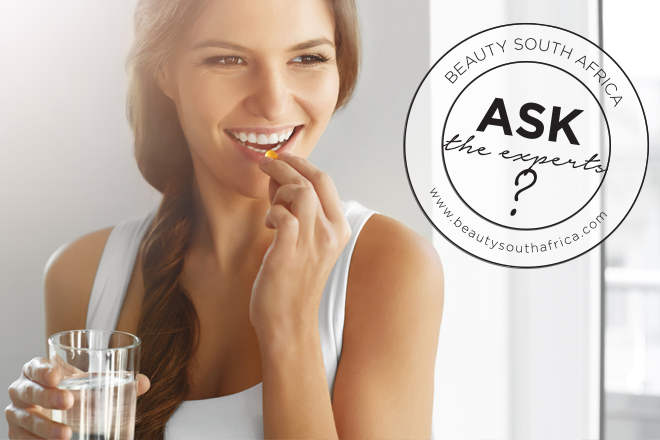
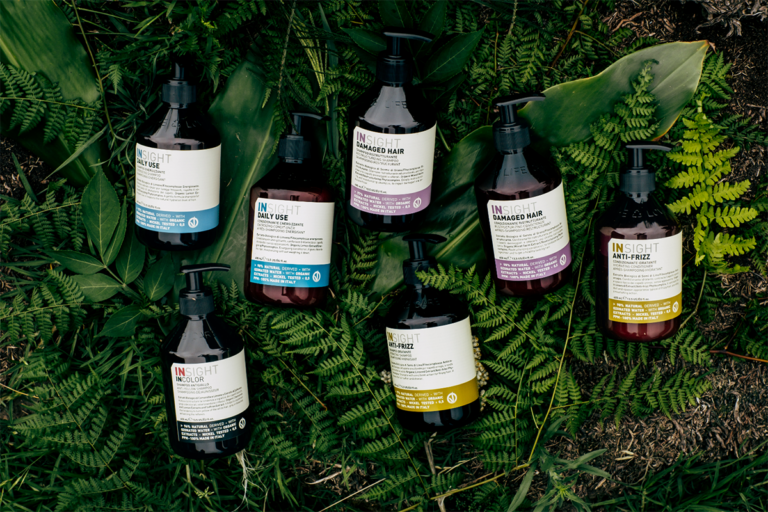
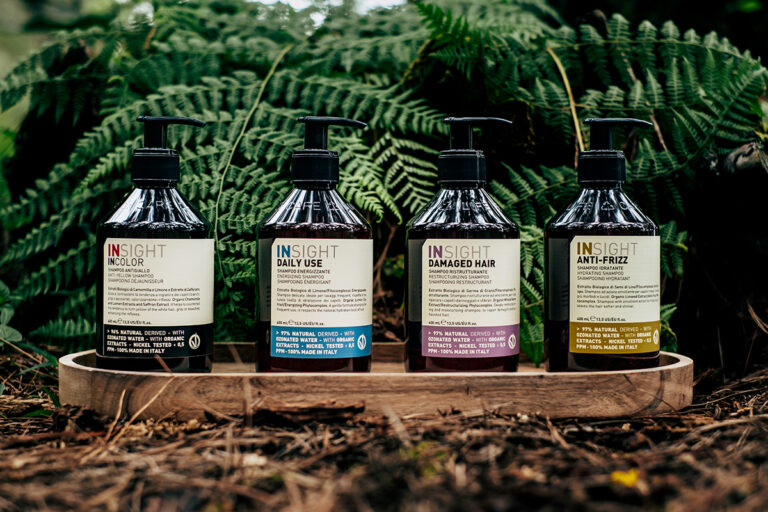
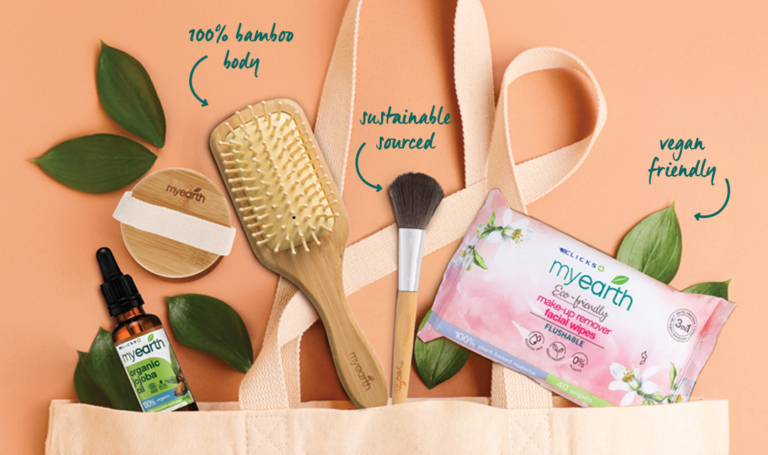
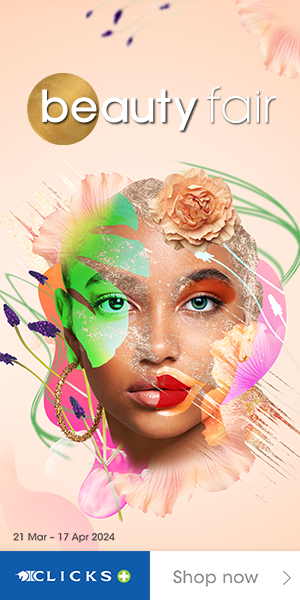
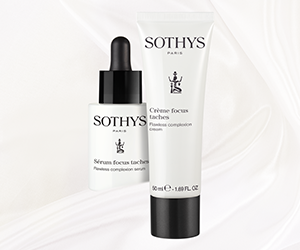

5 Responses
I am taking Vital for women which contains all the multi vitamins
I swear by Omega 3 Fatty Acids – not only are they good for your skin, but they are just great for your overall health as well.
Most vitamins that we need are often derived from our daily diet and oral intake may lead to overdosing depending on the type etc.
I am using Centrum. Are these really worth taking?
There are so many different supplements out there. You get ones for healthy skin, one for energy, etc etc. How many of these do you need to really take?